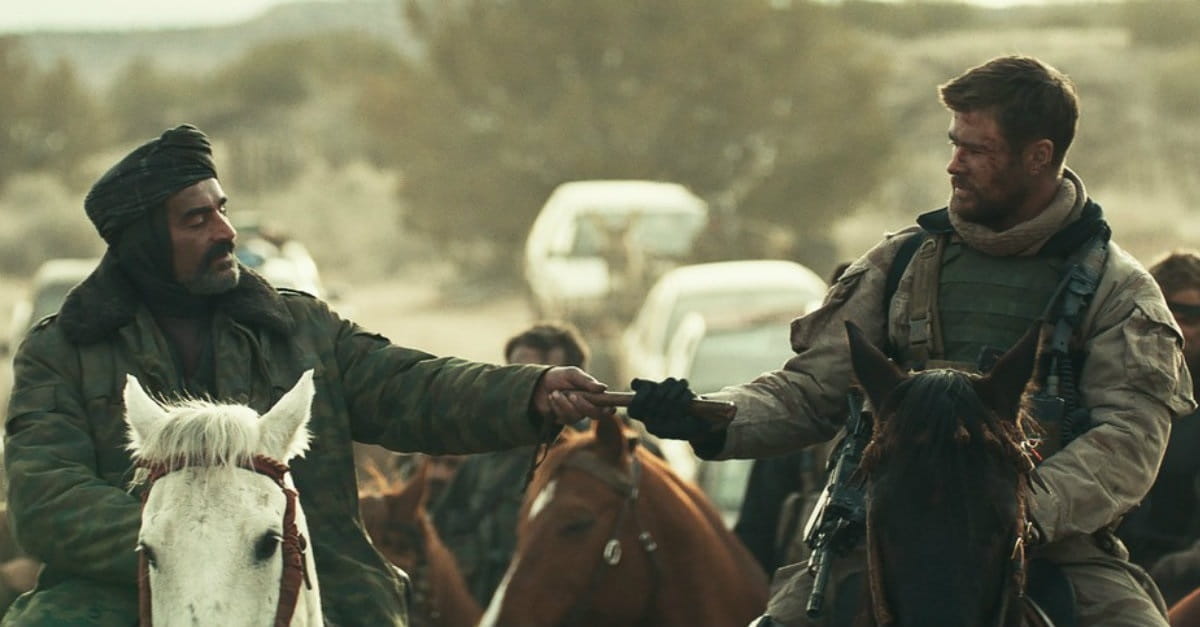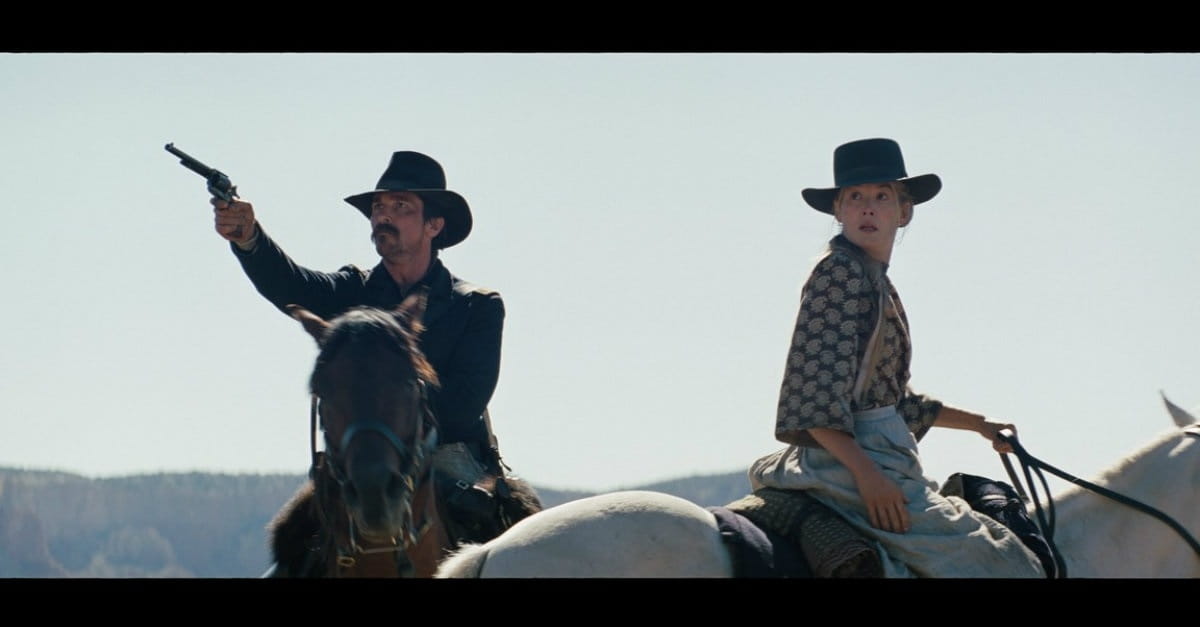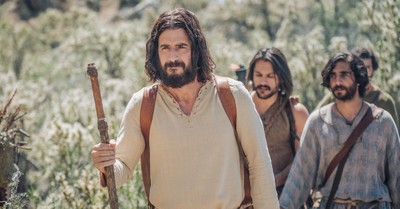Artful Moonrise Kingdom a Story of First Love
- Jeffrey Huston Crosswalk.com Contributing Writer
- Updated Apr 16, 2013

DVD Release Date: October 16, 2012
Theatrical Release Date: May 25, 2012 (limited); June 22, 2012 (wider)
Rating: PG-13 (for language, sexual content, and smoking)
Genre: Comedy-Drama
Run Time: 94 min.
Director: Wes Anderson
Actors: Jared Gilman, Kara Hayward, Edward Norton, Bruce Willis, Frances McDormand, Bill Murray, Tilda Swinton, Bob Balaban, Jason
I love entering Wes Anderson’s world. It certainly is another one, and it’s unlike any other. If there’s such a thing as Hipster Cinema then Anderson is its Intelligent Designer, and thus far the only filmmaker who’s elevated the subgenre’s mix of quirky ennui, comic existentialism, and classic folk/rock soundtracks to a true art form. Moonrise Kingdom is indeed just that—a work of art, as much as any film Anderson’s made.
Even as some detractors find his particular aesthetic insufferably precious, Anderson seems to confidently (even defiantly) double-down on his auterism with each new outing. His films are statically-framed, have hyper-real characters, self-consciously clever dialogue, are crafted with a precision that borders on obsessive, and are often art-directed to within an inch of their lives. Anderson’s critics derisively refer to that style as “twee” (i.e. something that is sweet, almost to the point of being sickeningly so), but kindred spirits like myself call it something else: magical.
Set in rural oceanfront Rhode Island circa 1965, Moonrise Kingdom is a story of first love. The star-crossed outsiders are two young teenagers, dorky scouting expert Sam Shakusky (no doubt a semi-autobiographical Anderson archetype) and the beautiful but angsty introvert Suzy Bishop (no doubt Anderson’s dream girl at that age). Sam is a literal orphan in foster care. Suzy is an emotional orphan within her own well-to-do family. They’re from two different worlds yet share the same loneliness. The first time they find connection is when they find each other.
That connection, which has grown in secret, leads to the dramatic decision to run away together. This ends up fueling the core of the film’s narrative, both for Sam and Suzy’s relationship as well as the efforts of the search parties—Suzy’s parents, the Island Police Captain, and Sam’s troop and scout leader.
Played by newcomers Jared Gilman and Kara Hayward, these pen-pals turned runaways instantly hold a special place in the pantheon of coming-of-age stories. Sam and Suzy are simultaneously confident and awkward, certain of who they are while uncertain of how they fit into the world. Sam’s quirks are particularly endearing; his Type-A nerdiness makes him a superior scout (he can pitch an impressive campsite while also taking inventory of all resources) who also spouts completely pointless survival skills (“Throw pine needles into the air to see which way the wind is blowing” or “ Watch out for turtles. They’ll bite you if you put your finger in their mouths.”). Suzy is a more familiar type (the disaffected teenager), but no less compelling or complex.
It’s not just an emotional awakening but also a sexual one (albeit awkward). While they don’t go so far as to have sex, their time together in the woods does include exploration: kissing, touching each other, laying in the same sleeping bag, and so on. Admittedly I felt awkward watching it (which is the point), but these scenes—which do involve the young actors being in their underwear—are, while honest, probably too honest for younger viewers who are still as confused as the characters we’re watching. Regardless of how you take those moments yourself (they went a bit farther than I’m comfortable with), your heart goes out to them because there was a time when you struggled with the same feelings.
The adult ensemble—consisting of all the stars used to market the movie—is more a supporting cast to the younger leads. While Anderson does include two veterans of his acting troupe (Bill Murray and Jason Schwartzman—Rushmore, Fantastic Mr. Fox, and others), Moonrise Kingdom boasts an infusion of first-time collaborators. Edward Norton and Harvey Keitel (Stone and Little Fockers, respectively) are joined by Oscar winners Frances McDormand and Tilda Swinton (Transformers: Dark of the Moon and The Chronicles of Narnia series, also respectively), and they all fit perfectly into Anderson’s universe of eccentric characters that require absolute conviction to pull off. Bruce Willis is another first-timer and, initially, he feels out of place; but as both the film and his lonely Island Police chief evolve we begin to see Anderson’s reasoning (especially in a climax that requires an aged quasi-John McClane from Die Hard).
The fictionalized version of the Boy Scouts—cleverly renamed The Khaki Scouts here—seems, at first blush, to serve a two-fold function: as foundation for story and character as well as an inspired visual motif for the meticulous Anderson to have a field day with (and he does). Upon reflection, a brilliant third layer of metaphor emerges: scouting is a perfect contrast to young love.
Scouting exists to prepare kids for life. While it does that well, its preparation is limited to what’s practical, tangible, can be comprehended and mastered, defined controlled, and rewarded. Young love is the opposite of all those things. It’s difficult to understand, to articulate, or know what to do with, and there is no institution (even quality parenting has its limits) that can fully prepare kids for all that adolescence opens, especially the ambush of romantic attraction. First love is confusing, it can’t be controlled, and lacks predictable outcomes. Anderson never makes an overt connection to this contrast between scouting and maturing (to his credit), but no doubt it was an astute intention.
For all the deep thematic and emotional textures, it should be stressed that Moonrise Kingdom is also very funny and reflective of Anderson’s patented wit, one so dry it’s over-the-top. The pace often clips along at that of a tightly-choreographed stage farce, and some lines elicit full-out guffaws (a few seconds after the quip finally sinks in). It’s also an absolutely gorgeous film to look at, earthy yet fantastical, an exaggerated form of reality that feels like a life-sized play set. It has the feel of a fairy tale, but for a mature audience.
When I see superior filmmaking like Moonrise Kingdom, I can’t help but wonder what it is that Anderson’s imitators lack. The first and most obvious fact is they simply aren’t up to his visual or stylistic caliber. More deeply, what hipster filmmakers really don’t get is that while their characters flounder in self-absorption Anderson’s are defined by grace and empathy—he to his characters and they to each other. Maybe not initially or even mostly, but eventually. They cautiously reveal their feelings and fears rather than wallowing in them. Wes Anderson romanticizes melancholy, not by empathizing with narcissism but rather in discovering the cathartic potential of risking vulnerability.
CAUTIONS:
- Drugs/Alcohol Content: Adults are occasionally seen smoking a cigarette. A boy sips a beer.
- Language/Profanity: One H-word, three D-words, a masculine B-word, two uses of SOB, and four variations of the Lord’s name taken in vain.
- Sexual Content/Nudity: The young teenage boy and girl are together while in their underwear. The boy touches her bra-covered chest. They kiss. When they hug, she mentions that she feels his erection. They lay in the same sleeping bag together, but clothed. They do not have sex. A group of boys briefly theorize about what Sam and Suzy may have done while alone in the woods. Two adults are in an adulterous affair, but it’s a narrative and thematic element only as we only see them briefly kiss once.
- Violence: Kids bully another kid on a couple of occasions, first verbally then physically. A boy shoots at another with a BB gun. A boy is stabbed in the side with scissors (the act is not seen, just the bloody result). A boy pierces a girl’s ear with a fishhook.














